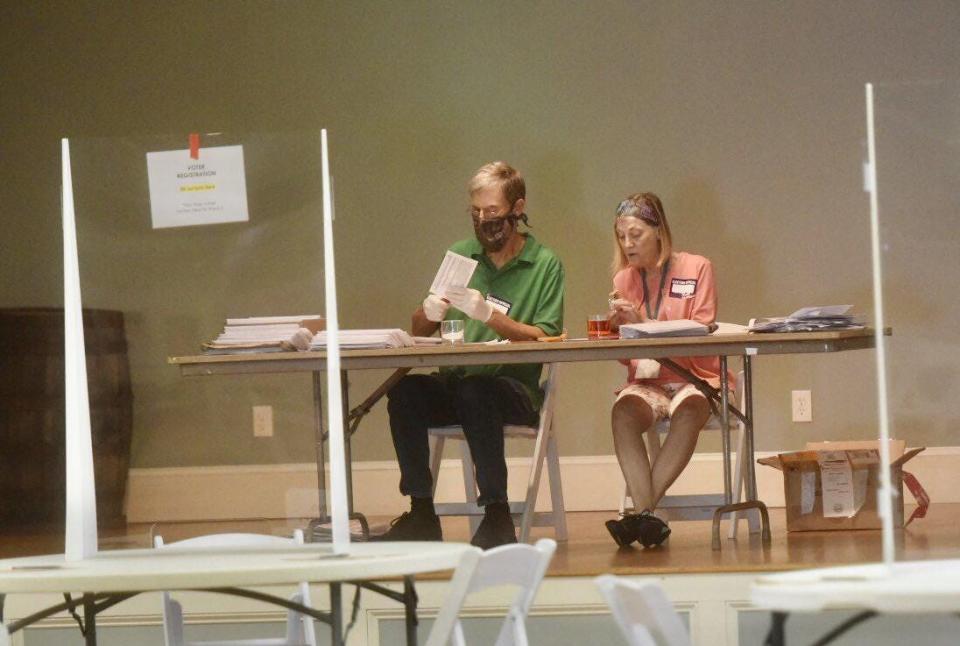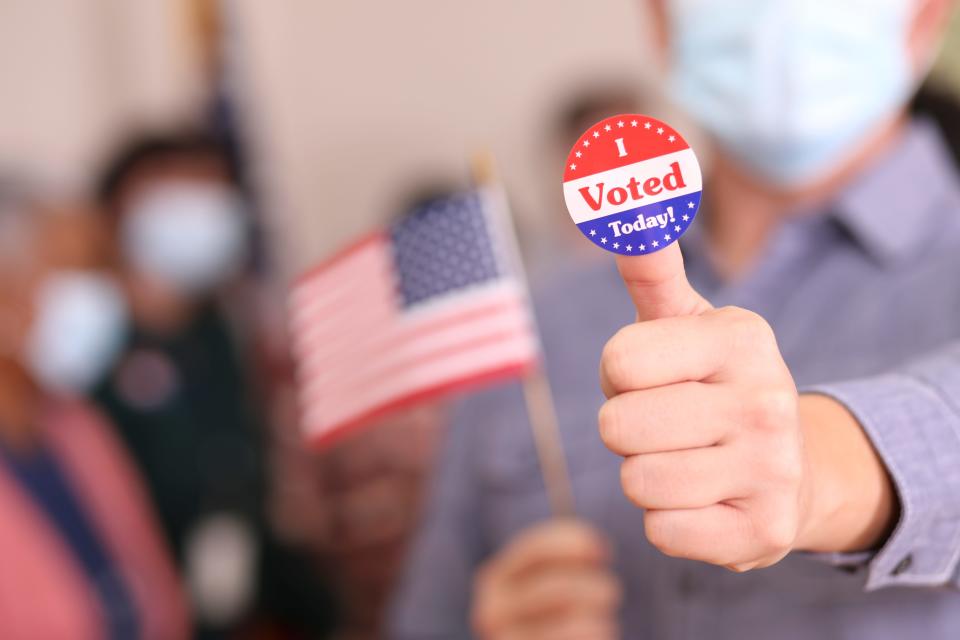In wake of recent presidential races, New Hampshire lawmakers battle over voting laws
EDITOR'S NOTE: This page is part of a comprehensive guide to voting rights across the U.S. and in Puerto Rico.
New Hampshire's elections are often in the national spotlight, thanks to its first-in-the nation presidential primary and purple voting history.
Like other states, New Hampshire has seen attempts to tighten voting laws since the Voting Rights Act of 1965.
Some of them have come in recent years.
After his victory in the 2016 presidential election, Donald Trump famously claimed without evidence thousands of people were bused into New Hampshire from Massachusetts to vote illegally. He stated that's why he lost the state to Hillary Clinton, drawing serious pushback. In 2017, New Hampshire's Republican-majority Legislature followed up by passing a law to require anyone who registered within 30 days of an election to provide additional documentation, the Associated Press reported.
The law faced legal challenges and survived a Democratic-led effort to overturn it two years later, thanks to a veto by Republican Gov. Chris Sununu.
However, opponents of the law, including the Democratic Party, won a court battle. And in July 2021, the New Hampshire Supreme Court killed the law, the AP reported, upholding a judge's 2020 ruling it was unconstitutional.
In 2022, the Republican-led Legislature made another attempt to add a layer to what is required of same-day registered voters. Sununu signed the bill in June. Under the new law, which will not go into effect until 2023, voters who are registering to vote in New Hampshire for the first time on election day will be required to mail in proof of their identity if they don't provide it at the polling place, according to the New Hampshire Bulletin. If they fail to do so, their votes will be voided. There are predictions this will delay election results, and it's already being challenged in court.
The New Hampshire Advisory Committee to the U.S. Commission on Civil Rights filed a report in 2018
that included recommendations, including a call to loosen the state's absentee voting law requirements.
In 2022, NH absentee voting rules are unchanged
New Hampshire allows absentee voting only for specific reasons. The law states these reasons include "being absent from the voter’s city or town, a religious observance, disability or illness, and employment commitments (including caregiving) during the entire time the polls are open."
New Hampshire, like many states, saw record-high absentee voting numbers during the coronavirus pandemic, giving many voters a reason to use it, but Secretary of State David Scanlan expects those numbers to come down in the 2022 election.

“Typically, New Hampshire has roughly 10% of its voters vote by absentee ballot in any given election, but when the pandemic hit that number ballooned up to about 30%,” Scanlan said. "We're focusing on the upcoming 2022 elections and looking ahead to 2024."
In the November 2020 general election, there were 260,217 absentee ballots among a total of 814,499. The absentee ballots included 23,531 in Strafford County and 69,694 in Rockingham County.

The 2020 election was an outlier due to the pandemic and the increased number in absentee and mail-in voting. During the 2018 election, there were 45,887 absentee votes among 580,214 ballots. In the 2016 election, there were 75,305 absentee votes out of a total of 755,850 ballots cast, according to the secretary of state’s office.
“For this next round of elections, I expect it's going to drop back down to that 10% level again, because a lot of the temporary orders in place to allow for more absentee exceptions due to COVID-19 have been lifted," Scanlan said.
The state primary election will be held Tuesday, Sept. 13, 2022.
NH formerly denied right to vote for those not paying taxes
Looking back deeper into history, New Hampshire had made three amendments to the state constitution's Bill of Rights since 1964 that expanded voting rights. A 1968 amendment ended the practice of denying the right to vote because of nonpayment of taxes. A 1976 amendment lowered the voting age to 18. And a 1984 amendment provides "accessibility to all registration and polling places."
This article originally appeared on Portsmouth Herald: New Hampshire voting: Voting rights expanded since 1964, until recently

